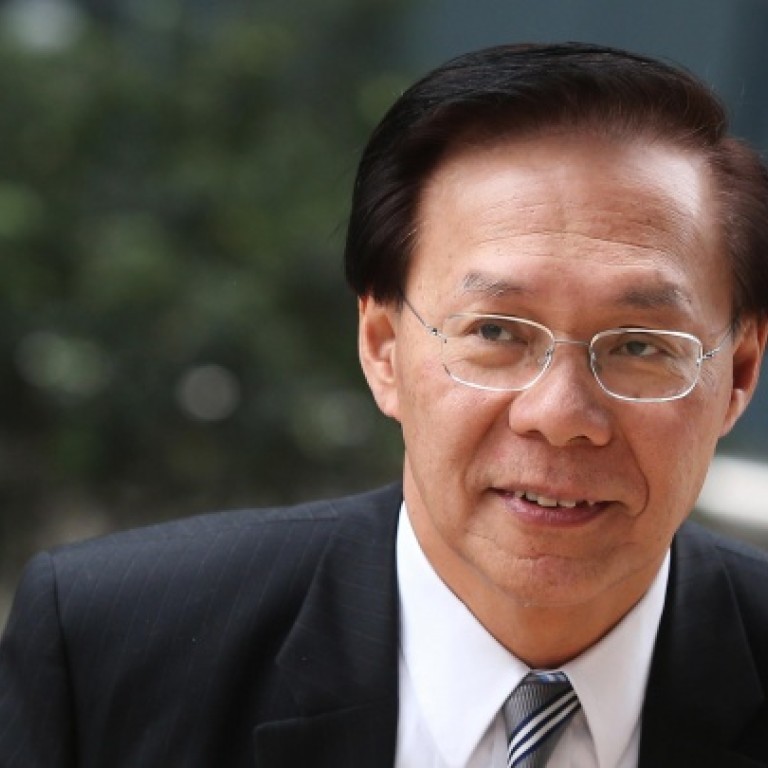
Mak, Tsang to answer subsidy fraud case
Judge rules there is sufficient legal ground for trial to go on over civil servants' alleged intent to cheat the government of housing money
A judge ruled yesterday that former development minister Mak Chai-kwong and assistant highways director Tsang King-man had a case to answer in their housing subsidy fraud trial.
District Judge Johnny Chan Jong-herng gave the ruling after listening to all prosecution witnesses' testimonies and no-case-to-answer submissions by Tsang's lawyer, Cheng Huan SC.
The defence lawyers will open their case today and call upon witnesses, if any, to testify.
Mak, 62, and Tsang, 57, are accused of deceiving the government of HK$700,000 by using two flats in which they had a financial interest to claim rental allowances from 1986 to 1990.
Mak also faces two counts, and Tsang three counts, of using documents with intent to deceive the government.
In 1985, Mak bought unit 21E in City Garden, North Point, and Tsang bought the flat one floor above, 22E, the court had heard.
The next year, the duo cross-leased their flats.
In yesterday's submissions, Cheng told the District Court that in the conspiracy to defraud charge, the main issue was whether Tsang had a "financial or proprietary interest" in flat 21E when he bought the flat above, and that the other charges were "in a way alternative charges" to the defrauding charge.
"Between 1985 and 1990, [Tsang] did not in law have any financial or proprietary interest in flat 21E," Cheng said. "And if in law he did not have any financial interest or proprietary interest in flat 21E, he did not, as a matter of law, make any false declaration on the three occasions."
Cheng said when Tsang and his wife Pau Wai-ming signed the sale and purchase agreement of flat 22E in 1985, the couple became its legal owners until 1990 when a power of attorney was prepared in favour of Mak in relation to flat 22E.
The prosecution holds that Mak and Tsang were the genuine owners of the flats they rented from each other.
The defence has denied this, arguing that the pair swapped ownerships only in late 1990 when Tsang failed to sell flat 22E that had a tenancy agreement.
Responding to Cheng's submissions, prosecutor Daniel Marash SC said: "Legal arrangements or papers were done as a fraudulent arrangement … Whatever appeared in legal position was not the true position."
The prosecution alleged the pair entered into a deceptive deal to buy the two flats and leased them to each other in their wives' names, thereby covering up their financial interests in the flats.
The court earlier heard that cross-leasing was at the time officially permitted.
But Marash said leasing the flats in their wives' names meant the pair did not want the government to know they were cross-leasing to each other.
"Why didn't they want the government to know if it's perfectly legal?" the prosecutor said. "[They] fooled the government in the beginning in relation to the financial interest of the properties."
The trial continues today.
